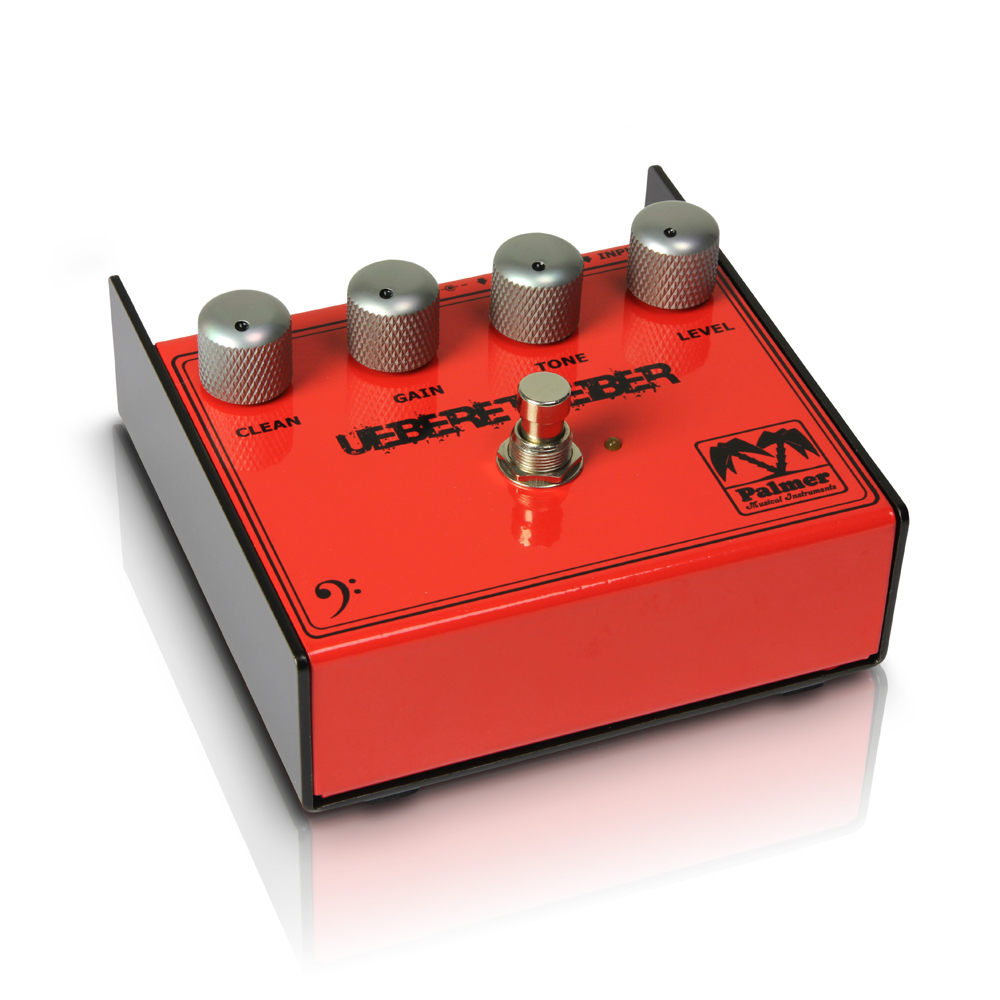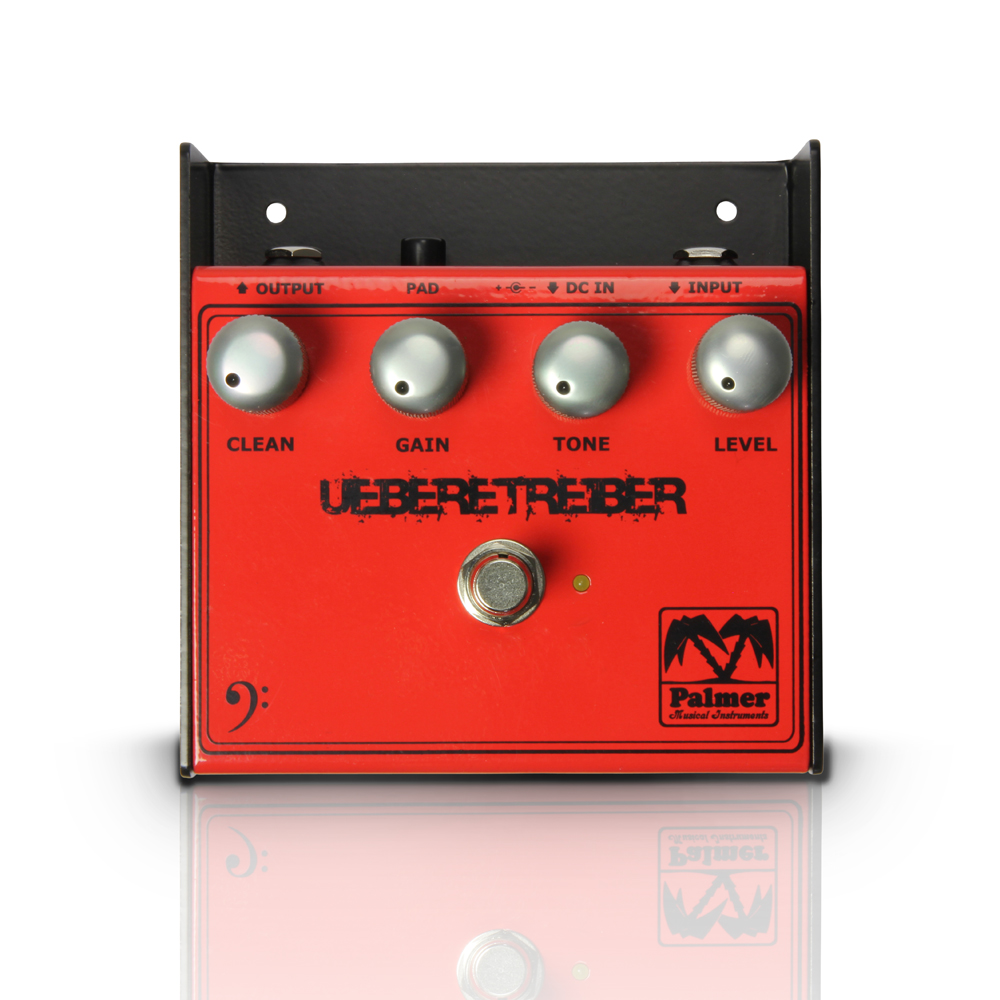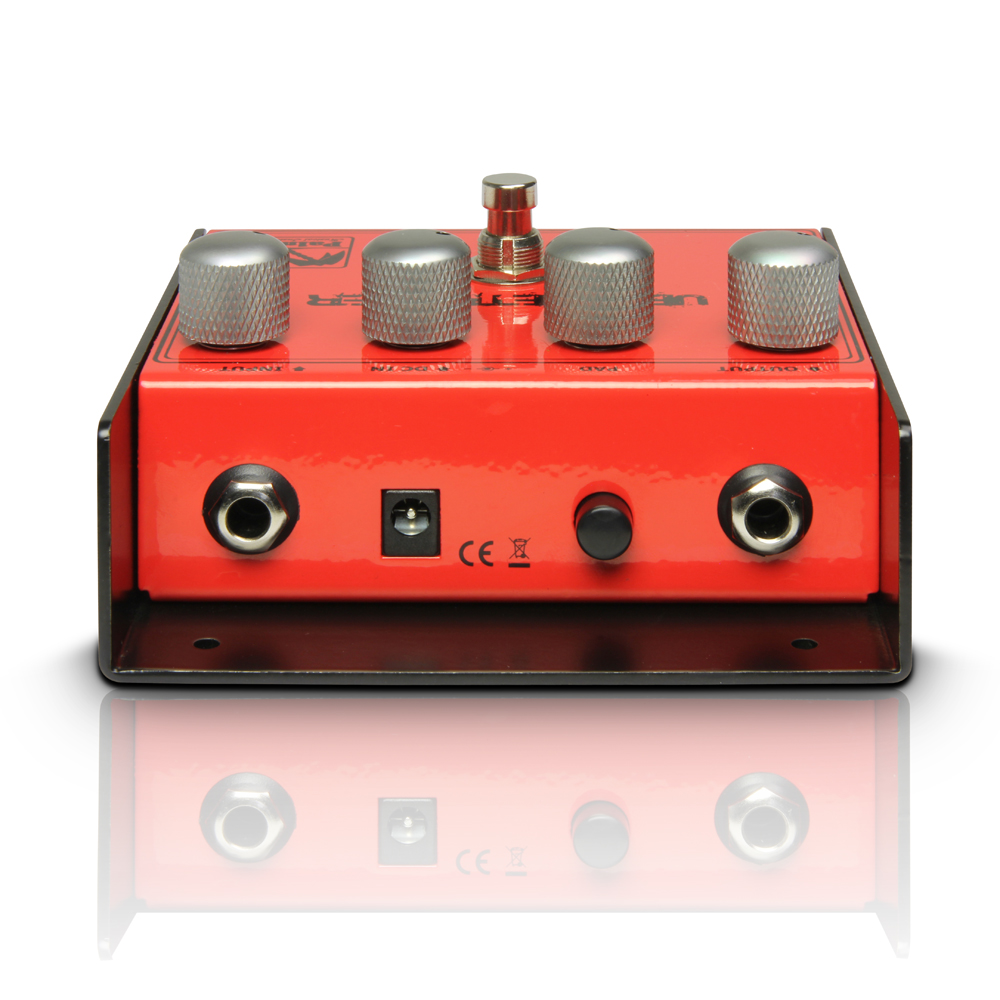Palmer Übertreiber- Test report by Bass Professor Magazine
Among the plethora of bass pedals with distortion, there is one that stands out in the crowd which convinced me in terms of its sound. It is made by “Palmer”, a company founded in Neu Anspach in 1980, which is well known for their indestructible D.I. boxes and home-made transformers .But they don’t just make transformers and D.I. boxes, they also produce an extensive range of equipment for amplification and sound processing. “Root-Effects” is the name of the series from which the Overdrive/Distortion-Pedal originates, and which we want to check out today.
Design:
Made from 2 mm thick sheet steel, the red and black relatively heavy box was given the whacky name “Übertreiber”.The Übertreiber comes in a sleek package labelled “Designed and Engineered in Germany” and of course also includes a Palmer plectrum and an instruction manual. On the top, we have 4 beautiful potis in matt metal, located above the stomp switch which features a status LED. Right behind, you can find the in-and output, 9-volt power supply jack and a PAD switch which lowers the level of active basses. Personally, I find this absolutely awesome, since my amp for example, has no level attenuation. Just underneath, the housing of the Übertreiber has been designed so as to allow fixing the pedal onto the pedal board through an open angle including pre-drilled holes. On the bottom, is a slip-resistant and non-toxic smelling pad, neatly installed, with access to the battery compartment. This can be opened with a fingernail and folded out at a 70 degree angle; then you open a further slot for the block battery, allowing you to insert it directly onto the contacts without the hassle of cable spaghetti. It sounds more complicated than it is and everything can be done without a screwdriver.
Sound:
The first potentiometer controls the amount of Clean signal, the second, how much distortion you want to add, the third regulates the tone of the distortion, and the fourth, the volume of the output signal as a whole. Therefore, you could also use the Übertreiber as a pure Boost-Pedal. So now let’s tackle the beast: The Clean full out, the Gain on automatic fire and the Tone controller turned slowly to the right. AH – here it comes – a really good and unique-sounding distortion that goes straight up to the limit of what should not be taken further. Or even to exaggerate [Übertreiber = one who exaggerates, in German] With the Clean you get the bass frequencies back, and with the Tone, it becomes tamer in the whipped-up overtone zone. The Gain controller should however be kept on full boost to allow the Übertreiber to really take over. Noises were kept within reasonable limits.
Conclusion:
With the Übertreiber, Palmer delivers a unique pedal that is well-designed both in craftsmanship and features, that doesn’t need to fear the competition at all. The degree of possible distortion is, from my own point of view as Metal-Bassist, to be classified as moderate, there is definitely no “dead metal” distortion, but that is exactly what I believe to be the art of bass distortion. The Übertreiber can be purchased for an equally modest price of 85 € and that’s for a pedal Made in Germany!
For additional product information, go to:
http://www.palmer-germany.com/mi/en/UBERTREIBER-Distortion-effect-for-bass-PEBUT.htm
Author: Jenz Gears
Source: Bass Professor Magazine, Germany, January 2014
Leave a Comment
You must be logged in to post a comment.












